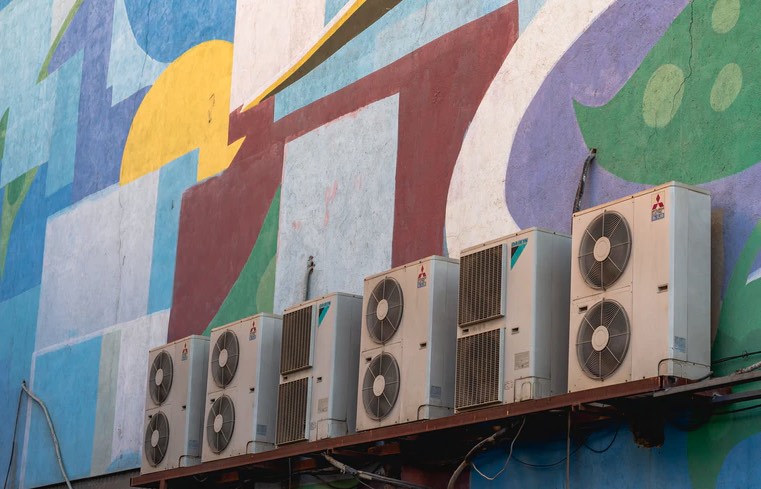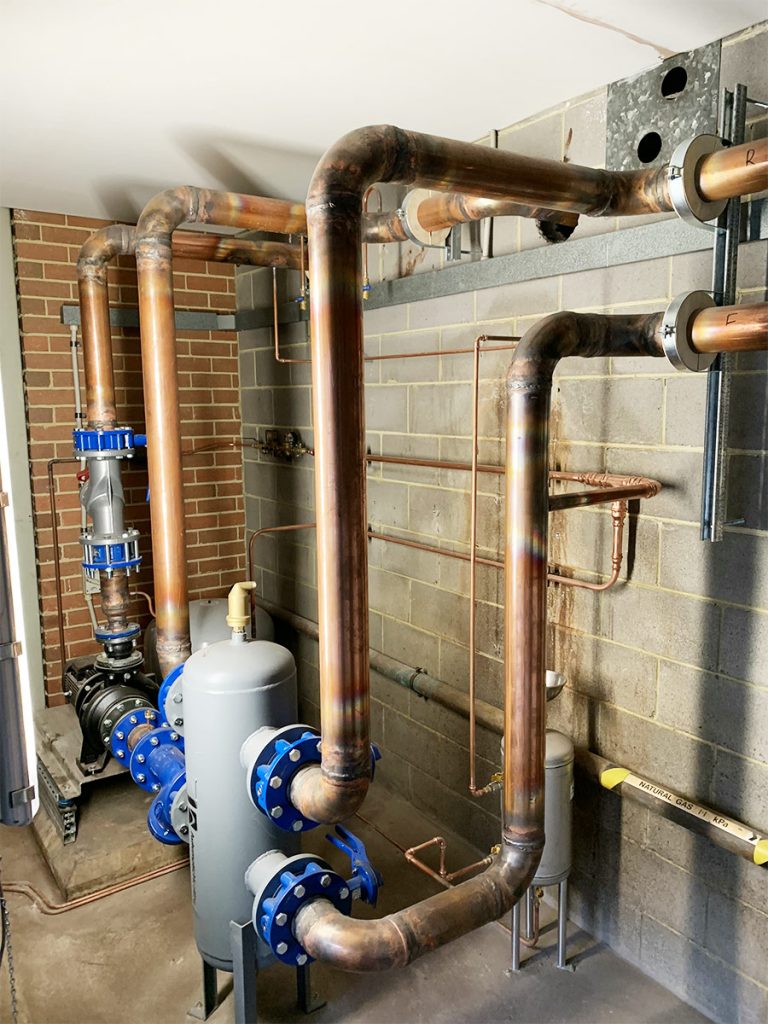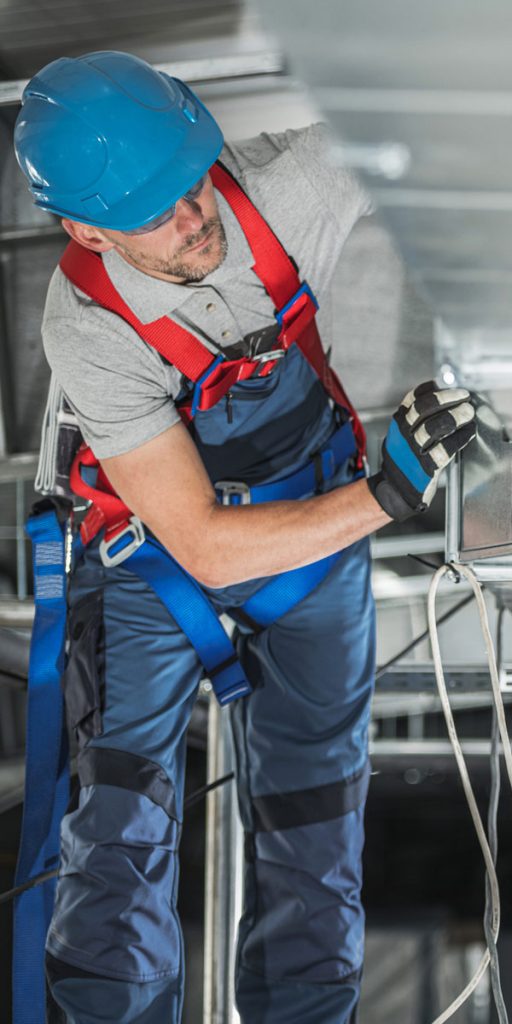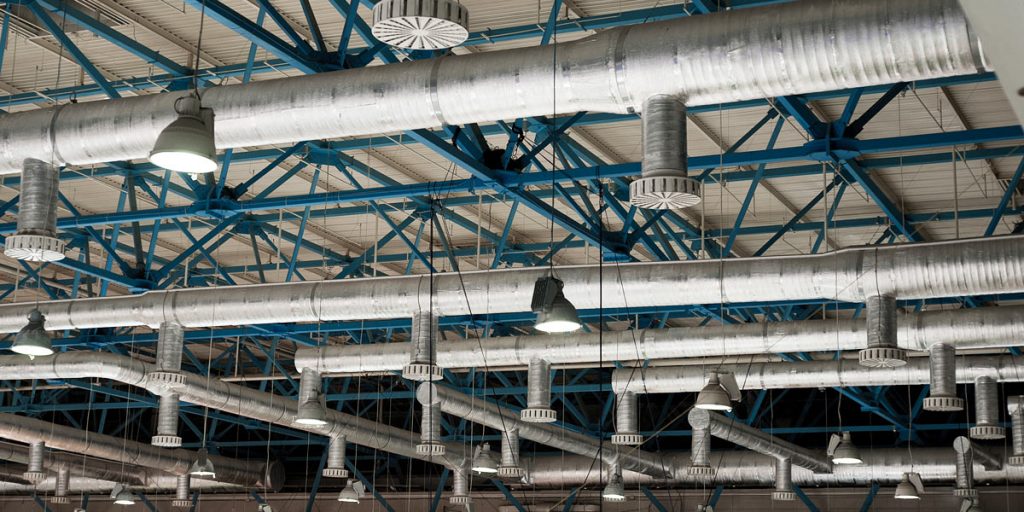Your HVAC system is a huge investment, so, naturally, you would want to do everything you can to get the most out of it for the longest time possible. Here is some useful information on what you can expect for your HVAC lifespan and how you can ensure that your system gives you many long years of service.
The debate on the lifetime of a commercial HVAC system is ongoing. Advancements in HVAC technology have extended the life cycle of almost every product in the industry while also creating a need to replace equipment more frequently as more efficient commercial HVAC equipment seems to be coming out every year.
As efficiencies increase and operational costs decrease, the debate continues. Although we don’t have an exact answer, we have general expectations and understand factors affecting the HVAC lifespan.
A complete HVAC system replacement is a big job. Yet, sooner or later, even the best system will reach the end of its functional life. Proactive, ongoing maintenance can significantly prolong any unit’s performance, but knowing when to make a big change remains essential. Check out Commercial HVAC Melbourne page which has everything you might need near you.
Understanding the Expected Lifespan of Commercial HVAC System

The first thing that you need to know is that not all commercial HVAC systems are the same. They are made differently, and they have parts sourced from different suppliers. This means that different approaches can have different life expectancies.
Most manufacturers are in agreement that the average HVAC lifespan is between 15-25 years. There are even claims coming from some companies that systems, which are well maintained can last more than 25 years, as well maintained commercial HVAC systems last longer than those which are not.
Purchasing new heating and cooling equipment for your Central Indiana commercial building is a significant capital expenditure. To accurately plan and budget for this cost while maximizing the return on investment of your existing equipment, it’s helpful to know the life expectancy of a commercial HVAC unit.
Unfortunately, there’s no clear answer, as several factors can impact the actual number of usable years a system will deliver. While the life expectancy of commercial heating and air conditioner unit is never certain, there is an estimate or average for each equipment type. Therefore, the average life expectancy of a particular type of commercial HVAC system is a good starting point to work from as you factor in other aspects that influence service life
The industry organization that determines standards for HVAC equipment – the institution also maintains a database with information regarding the life expectancy of a commercial HVAC unit by system type. According to the Owning and Operating Cost Database, the following average life expectancies for various types of commercial heating and cooling equipment are:
- Commercial air-source heat pumps: 15 years
- Commercial water-to-air heat pumps: 15 years
- Single- and multi-zone rooftop air conditioners: 15 years
- Steel water-tube steam boilers: 24 years
- Steel fire-tube steam boilers: 25 years
- Cast iron steam boilers: 35 years
- Electric steam boilers: 15 years
- Gas or oil furnaces: 18 years
- Electric radiant heaters: 10 years
- Hot water or radiant steam heaters: 25 years
- Ductwork: 30 years
- Reciprocating packaged chillers: 20 years
- Centrifugal and absorption packaged chillers: 23 years
- Galvanized metal and wood cooling towers: 20 years
- Ceramic cooling towers: 34 years
The life expectancy of commercial HVAC units is typically 15 to 20 years however depends on a number of factors such as:
- Size of the system in relation to the building or space square footage
- Size of the Unit in relation to the ductwork size
- Preventative maintenance regularity
- How often filters are changed
- Climate and weather conditions
- The intensity of use, such as extreme cold settings or hot
- Installation quality
- Compatibility of system components age vs the age of the unit
Average Lifespan of HVAC Components
- Central Air Conditioner – 15 years
- Rooftop Air Conditioner – 15 years
- Air Compressor – 15 years
- Heat Pump – 15 years
- Boilers – 30 years
Typical HVAC Life Spans
The service life of an HVAC system depends on its type. Here are the typical life spans for standard HVAC equipment:
- Furnaces – With proper maintenance, gas furnaces typically last 20 to 30 years, or even longer. Usually, a furnace is replaced when the heat exchanger starts leaking, as it is one of the most critical and expensive components. Systems that are poorly maintained or of questionable quality may last as little as 10 years, while oil furnaces typically last only 10 to 15 years due to maintenance problems caused by the inefficient fuel.
- Boilers – Boilers often last slightly longer than furnaces, with an average life span of 20 to 35 years. Usually, they are replaced when the heat exchanger starts leaking.
- Air conditioners – Most air conditioners will last 15 to 20 years, though some may last closer to 10. In coastal areas, they typically last only seven to 12 years due to salt exposure. Both air conditioners and heat pumps are usually replaced when the compressor fails, or the condenser develops significant corrosion and leaks.
- Heat pumps can last 10 to 20 years, depending on usage frequency, though 15 is average. Functionally, heat pumps are similar to air conditioners, but they are typically used longer each year because they can provide both heating and cooling. Heat pumps in coastal areas will also fail prematurely, with typical life spans of seven to 12 years.
- Ductless mini-splits – Like heat pumps, ductless mini-splits can provide both heating and cooling, with a typical life span of 10 to 30 years, except in coastal areas.

While these are the most common life spans, many homeowners choose to replace their HVAC system sooner. As the system ages, it will gradually become less reliable and efficient, increasing repair and utility costs. However, once a system is 10 to 15 years old, the monthly energy savings from upgrading to a newer, more efficient model can often justify the initial investment, especially if the current system is unreliable or has major problems. Our exclusive range of services for HVAC Maintenance will help you in many services, including Installation, or Maintenance, or Service & Repair.
What Key Factors Determine HVAC System Lifespan?
A large-scale commercial HVAC system is incredibly complex. Although it bears some basic similarities to residential systems, it is many times more sophisticated and provides performance far beyond anything available to the consumer.
Some of the most important factors in its long-term survival include:
- Quality of the key components;
- The efficient design of the system;
- Usage demands during the year;
- Correct system installation;
- Climate zone of the structure;
- Maintenance and technical skills.
Even this is only a small fraction of the complete picture since the HVAC system’s performance must gel with business realities. As the system ages, it naturally becomes much less efficient. This drives up cost and makes it harder to meet regulatory standards. Eventually, the cost of keeping the system running will begin to eclipse the replacement cost.
Factors Affecting HVAC Lifespan
While maintenance certainly plays one of the most important roles in HVAC life expectancy, the lifespan of a St. Louis commercial HVAC system can also be affected by the following factors:
Type
Some AC systems are meant to last longer than others. For instance, ones that use a two-stage mechanism last longer because they are not subjected to frequent on and off cycles.
Quality of Installation
For a commercial HVAC system to function properly, precise installation services are necessary. Installation errors create system flaws that increase wear and tear to components and cause the unit to operate at lower-efficiency levels. Commercial HVAC equipment should always be installed by a licensed, qualified commercial heating and cooling professional.
The quality of installation will also affect the overall lifespan of your commercial HVAC system. It’s essential to ensure that a qualified and experienced HVAC professional completes the system’s installation. With an expert’s help with installation, you can rest easy that the size of the unit is appropriate in relation to the ductwork size and size of the building — both factors, if not thought out properly, can take years of your commercial HVAC system.
Proper installation of HVAC systems matters a lot. Bad installation renders systems susceptible to breakdowns and premature system failure.
Proper Maintenance Care
All commercial heating and cooling equipment require regular maintenance services to keep equipment in good working order. Failure to perform routine maintenance services for a building’s comfort system can significantly shorten the life expectancy of a commercial HVAC unit. Poor maintenance allows the wear and tear to damage components, reduce system energy efficiency, and places the equipment under unnecessary stress, which ultimately causes parts or the unit as a whole to fail sooner than expected.
When to Start Searching for Replacement Options
The average life expectancy of a commercial HVAC unit adjusted by the factors specific to your facility can provide you with an informed estimation of when your system will need to be replaced. However, nothing is for certain, so it is wise to start planning for or go ahead and replace your HVAC equipment when these points apply to your system:
- Current service life is nearing the average life expectancy of a commercial HVAC unit of its type.
- Malfunctions frequently occur, requiring commercial HVAC repairs.
- Visible signs of wear and tear and damage such as rust or corrosion.
- Utilizes outdated and inefficient technologies such as R-22 refrigerant and single-speed motors.
- Unable to keep up with current heating and cooling demand or keep the building comfortable.
- Energy expenses increase without explanation.
Proper maintenance of your commercial HVAC system is key for any building wanting a system to last over 20 years. Without proper maintenance, even the best-built systems will fail before reaching their maximum use lives.
Proper maintenance implies that preventative maintenance is being done, which is typically completed on a schedule. For example, your office’s air filters should be checked and possibly replaced every 2 months. Other types of preventative maintenance include:
- Cleaning the air ducts and external and internal components of the system.
- Replacing any worn parts.
- Having a professional HVAC inspection performed at least once a year by a licensed contractor.
Usage & Operating Conditions
Usage habits have a great impact on system service life. For example, a unit that runs constantly will experience more wear and tear than a unit that is used conservatively over the same time period. In addition, a building’s HVAC system usage is influenced by building size, occupancy, business operations, production activities, climate conditions, and more.
The climate and location of the building impact which systems are in use more during a typical year. Direct sunlight to outdoor components can add stress during operation. Equipment accumulates more dust in dry, arid areas, while HVAC systems in areas with high humidity are burdened with dehumidification needs. Whether or not indoor air quality equipment was utilized alongside the commercial HVAC system factors into the usage of the heating or cooling unit. Outside stressors causing wear and tear also affect the life expectancy of a commercial HVAC unit.
Wear And Tear
Just like the human body, your HVAC system also ages and wears with use. Often the more you use your system, the more quickly it experiences wear and tear. This is why systems used in very cold or hot regions have shorter HVAC life spans.
Outside Stressors
Outside stressors that can affect a commercial HVAC lifespan include climate and weather conditions. For example, the heat pump or a/c may be more affected in warmer climates, but in a colder environment, the furnace will receive more wear and tear. Also, the intensity of certain use, whether for hot or cold air, can affect an HVAC system’s lifespan. Looking for HVAC Design and Installation Melbourne? Look no further, Outline Air Melbourne has you covered.
Looking for HVAC Design and Installation Melbourne? Look no further, Outline Air Melbourne has you covered.
According to Air Conditioning, Heating, and Refrigeration News, inside stressors in a building can even be chemicals given off from cleaning supplies and outgassing from new materials like carpets or wood. Those chemicals are causing the indoor coils — particularly the copper — to wear out more quickly.
There are many things that can reduce the life span of HVAC equipment, including:
- Poor maintenance practices
- The poor initial quality or defective components
- Oversizing or under-sizing the system
- Improper installation procedures
- Inordinately high usage or high loads
- Improper usage, such as heating or cooling with windows and doors open
- Installation in salty or corrosive environments, such as coastal areas
Of these, poor maintenance and oversizing are the most detrimental. A lack of maintenance can lead to accelerated component wear and a dramatically shorter life span. At the same time, oversizing can cause frequent on-and-off cycling, leading to compressor or blower motor failure. Additionally, air conditioners or heat pumps in coastal areas will also see significantly reduced life spans due to salt corroding the condenser unit. However, with preventive maintenance plans, HVAC systems will last longer because small issues are caught before they require costly fixes.
Regular Maintenance Is Key

As many homeowners would agree, there’s a pretty big difference between your HVAC lasting 10 years vs. 30 years. So how can you get the most out of your heating and cooling?
More than any other factor, regular maintenance is key to prolonging the life of your HVAC systems.
What does regular maintenance entail? Whether you have a furnace, boiler, or heat pump, maintenance tips include:
- Changing filters regularly
- Scheduling annual or seasonal tune-ups
- Cleaning and removing debris from outside components
- Inspecting and replacing refrigerant as needed
Staying on top of these simple checklist items will help you avoid expensive heating or air conditioning repair, help your HVAC equipment last longer, and keep you comfortable all year long.
With all that having been said, the situation isn’t as dire as it might first appear.
One of the most important insights in HVAC system maintenance is this: Every component will directly influence the operation of every other component. That means a thorough and diligent approach to maintenance can secure peak operation for long periods.
Even a relatively simple oversight – such as forgetting to replace air duct filters – can start the process of raising demand on other areas of the system to unacceptable levels. However, when maintenance is truly comprehensive, individual component wear can be nearly nil.
This is the secret to getting multiple “extra” years out of your system at minimal added cost.
Unfortunately, most facilities teams simply do not have the specialized insight to achieve this in-house. That’s not surprising: There are so many other factors to be concerned about in a property that it’s hard to secure the specialized expertise an HVAC system needs.

